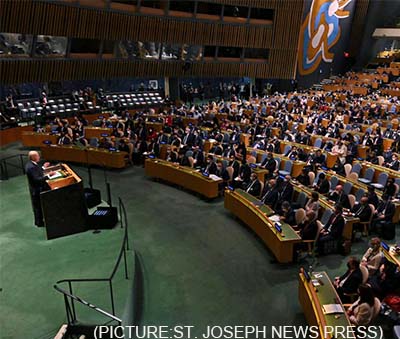President Joe Biden is facing a challenging struggle to affirm his strength and cognitive capacity for a second term, a personal and national ordeal that has become increasingly agonizing. His recent appearance on primetime television, where he candidly addressed questions about his health, felt like a breach of presidential dignity, exposing his vulnerability to the public eye. Despite his respected status among many Americans, witnessing Biden confront the harsh realities of aging so publicly evokes empathy.
Biden’s recent presidential debate performance, marked by moments of incoherence, has sparked significant concern and forced a national dialogue about his fitness for reelection. Although his interview following the debate showcased a more composed demeanor compared to the debate itself, it did little to dispel mounting doubts about his health and the stability of his Democratic support base. The growing pressure within his party suggests a potential crisis, with calls from Democratic leaders for Biden to step aside in favor of a younger candidate intensifying.
During his interview with ABC News, Biden aimed to refute criticisms stemming from his debate performance and solidify his position as the Democratic nominee for 2024. He presented a robust defense of his presidency and dismissed concerns about his health, asserting his readiness to continue his campaign despite calls for him to reconsider. Biden emphasized his longstanding commitment to resilience in the face of adversity, a stance that complicates the Democratic Party’s internal deliberations.
Despite Biden’s insistence that his health remains intact, questions persist about his ability to withstand the rigors of another term. His admission of feeling “terrible” before the debate, coupled with moments of uncertainty during the interview, only heightened anxieties about his physical and mental stamina. Concerns over his age and capacity to effectively serve as president have become focal points in discussions about his candidacy.
The interview highlighted Biden’s defensive posture against criticisms of his debate performance and polling trends indicating a decline in his national and swing state support. Democratic leaders, increasingly anxious about the implications for the upcoming election, have urged Biden to engage more directly with the public to demonstrate his vitality and capability to lead.
Amidst the debate over Biden’s candidacy, supporters argue that his accomplishments in office and the imperative to counter Trump’s potential reelection outweigh concerns about his age and performance. They contend that Biden’s experience and policy achievements should not be overshadowed by a single debate performance, emphasizing the stakes of the upcoming election and the broader implications for American democracy.
However, the persistent doubts about Biden’s ability to navigate another term in office have cast a shadow over discussions about his candidacy. Critics within the Democratic Party assert that while Biden has made significant contributions during his tenure, his continued candidacy risks jeopardizing the party’s prospects in November. They argue for a leadership transition that reflects the changing dynamics of American politics and addresses the challenges posed by Trump’s reelection campaign.
As Biden continues to confront skepticism about his candidacy, he remains steadfast in his determination to highlight his administration’s achievements and combat doubts about his capacity to lead. His efforts to redirect attention towards his policy agenda underscore his commitment to advancing his campaign despite the formidable challenges he faces.
In conclusion, Biden’s struggle to affirm his candidacy for a second term reflects broader anxieties within the Democratic Party about his ability to effectively compete against Trump. The debate over his health and fitness for office underscores the complexity of his reelection bid and the competing perspectives within his party regarding the path forward.

 Biden used his address to describe a world where American civic leadership, rather than military power, acts as the driving force to resolve persistent problems like coronavirus,
Biden used his address to describe a world where American civic leadership, rather than military power, acts as the driving force to resolve persistent problems like coronavirus,  He added, “Modi and Biden will review the robust and multifaceted ties between the India and the US. They will also deliberate on ways to further enrich India-US global partnership.”
He added, “Modi and Biden will review the robust and multifaceted ties between the India and the US. They will also deliberate on ways to further enrich India-US global partnership.”